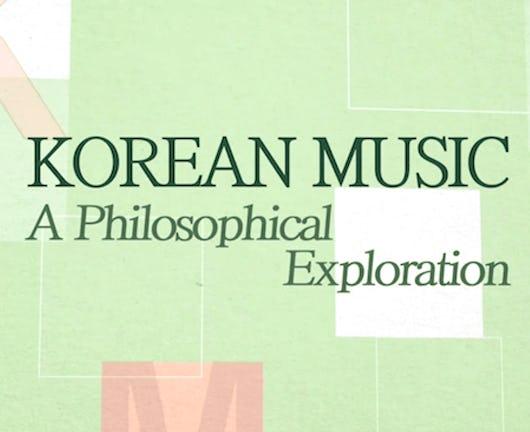MOOC List is learner-supported. When you buy through links on our site, we may earn an affiliate commission.

MOOC List is learner-supported. When you buy through links on our site, we may earn an affiliate commission.
What you'll learn
- The students can learn about the various aspects of Korean music and its cultural significance.
- The students can understand the differences between K-pop and traditional Korean music (Gugak) and what makes Korean music unique.
- The students can learn about the historical and cultural influences on Korean music and how it has evolved over time.
- The students can explore the emotional and symbolic meanings of Korean songs and how they relate to Korean culture and identity.
Syllabus
Philosophizing through Korean Music
In this week, students will explore the rich and diverse world of Korean music, encompassing both contemporary K-pop and traditional Korean music, known as Gukak. They will gain an appreciation for the connections and continuity between these seemingly disparate genres, recognizing how elements of traditional Korean music influence and inform the contemporary K-pop sound.
Evolving Identity of Korean Music
In this week, students will explore the concept of the "Korean Matrix" and how this course defines cultural boundaries, shedding light on the factors that shape and define Korean culture. Additionally, students will gain insights into the open-mindedness of Koreans towards embracing musical influences from various regions, including India, the Middle East, and China.
Korean Music Viewed through Cultural Boundaries
In this week, students will discover how Koreans have historically embraced foreign musical influences through the Taepyeongso, showcasing their openness to external ideas and sounds. will introduce students to ancient indigenous Korean instruments, specifically the Geomungo and Gayageum, highlighting their unique cultural significance and contributions to Korean music. Lastly, this week will explore the intriguing paradox of Korean culture, where they have demonstrated an acceptance of foreign ideas and music while preserving their own rich traditions.
Korean Music and Emotions
In this week, students will engage with Korean emotions like Han which can be felt through the famous song Arirang and Heung which can be heard in songs like Ong-Heya. Students will learn that Han and Heung are both complementing and contrasting emotions which reflects a unique feature of Korean emotionality.
Korean Music and Morality
In this week, students will first be introduced to Confucian ritual music and court music, gaining insight into the traditional ceremonial and royal musical practices of Korea.Furthermore, this week will delve into various theories, most notably Mencius’s music theory that explores the intricate relationship between music and morality, shedding light on how music can influence ethical values and behaviors.
Korean Music and Language
In this week, students will learn about Jeonganbo – Korea's unique musical notation system. Learners will also understand more about the Koreanness in Korean music and the connection between folk music and the Korean language. Additionally, students will be exposed to concepts such as Jangdan and how Daoist music theory might explain Korean musical innovation.
Let's Talk about Korean Music and Philosophy
This week is a round table with the lecturers and the student research assistants who helped develop this course. In this conversation the students will ask questions about topics ranging from Korean emotions, different models of history, to additional explanation about Jeonganbo (Korean music notation). This conversation serves to both summarize and dig deeper into the contents of the course previously covered.
MOOC List is learner-supported. When you buy through links on our site, we may earn an affiliate commission.
MOOC List is learner-supported. When you buy through links on our site, we may earn an affiliate commission.
